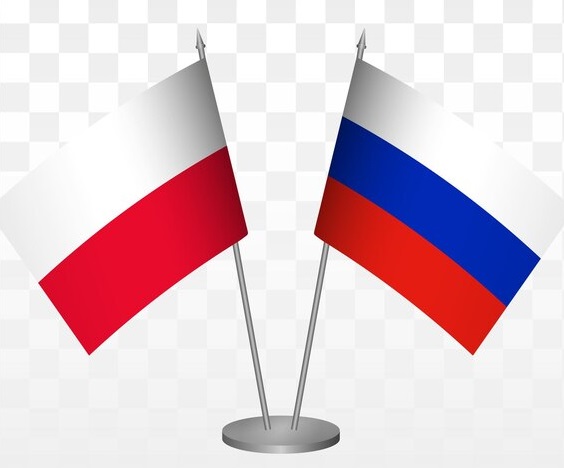Haqifa Nasir
Poland and Russia have complex, distrusting and antagonistic relations because of their complex history. On 17 September 1939, the Soviet Union invaded Poland from the East, sixteen days after Germany invaded Poland from the West. The victory of the Soviet Union in World War II led to the establishment of the Polish People’s Republic. Many Poles believed that the Soviet invasion was an act of aggression and was responsible for the subsequent decline of Poland. However, Poland received complete independence from Russia in 1989, following the collapse of communist regimes across Eastern Europe.
Many of the Polish people still retain the traumatic memories of their ancestors from the 1940s when Soviet leader Stalin took away land, property and business from Polish people and sent about 1.7 million Poles to slave labor camps in Siberia, Kazakhstan and Arkhangelsk Oblast. Polish people are still afraid that Russia might take their land, property, and businesses away from them akin to the Past. Thus, they leaned more toward the West so their sovereignty wouldn’t be compromised. Poland joined the European Union (EU) and the North Atlantic Treaty Organization (NATO) and Poland’s following European policies show a clear difference from Russia’s regressive policies. In reality, Russia is envious of Poland’s achievements and developments and how well it is doing with Europe.
However, in the 2000s Poland and Russia had cordial relations. Between 2000 and 2004, Putin and Kwasniewski convened 10 times for official and working visits, enhancing interaction within the governmental and social sectors. Export between both countries increased rapidly, with Russia being the 3rd largest exporter to Poland and the ninth-largest importer of Polish goods. Many people in Russia and Poland want to work together. About 76% of Polish people and 75% of Russians have positive feelings about working together. Poles admire Russian artists like the singer Bulat Okudzhava, and Poland has produced acclaimed versions of Russian works.
The relations between both states have never improved substantially. In April 2003 Poland announced plans to manage a zone in Iraq, Russia initially mocked the idea, seeing it as a small country acting beyond its capacity. However, after the Orange Revolution, Russia felt that Poland might also go against Russia which could further deteriorate Russia and West relations. Polish people still hold Russophobia. Things like Russian songs, movies and books (some might be exceptional) are banned in Poland. Poles view Russia and Germany as aggressors; however, the key difference is that Germans acknowledge and take responsibility for their actions, whereas Russia does not. Until they realize this Russia and Poland cannot have good relations
In 2014, Poland supported Crimea, and again in 2022, it stood with Ukraine against Russia. In both instances, Russia’s frustration and disappointment grew, intensifying their hostilities further. Poland also expelled Russian diplomats, alleging they were spying. The state security spokesman Stanislaw Zaryn said “These are people who…operate using their diplomatic status, but in reality conduct intelligence activities against Poland”. Russian Ambassador Sergei Andreev was called to the Polish foreign ministry and handed an official letter informing the expulsion of 45 employees working at the Russian embassy in Poland. On 9th September 2022 Estonia, Latvia, Lithuania, and Poland jointly restricted entry to Russian citizens holding Schengen visas. Factors that led to the restriction of visas for Russians were geopolitical Tensions, Security Concerns, and alignment with EU policy, Reciprocity and Diplomatic Relations and Domestic Security Measures. Russia has always considered Poland inferior, insignificant and less valued due to its size but Poland now is ready to challenge Russia back.
In Nov 2023 former president of Russia Dmitry Medvedev made a strong statement saying Russia now sees Poland as a serious threat and an enemy. Medvedev warned that if Poland continues its current actions, it could face severe consequences, including losing its status as an independent country.
Poland is planning a strategy called Shield-East to fortify its borders with the Russian enclave of Kaliningrad and Belarus. This plan involves installing a high-tech system to detect and halt drones and building strong fortifications along a 700-kilometer (430-mile) stretch of the border. The goal is to complete this project by 2028 to protect Poland from any hostile actions, like the illegal crossing of migrants, which is a concern for the European Union (EU). This plan exhibits that European countries are becoming more worried about possible threats from Russia, especially after the Russian unprovoked invasion of Ukraine.
In simple terms, the relations between Russia and Poland are complicated due to their extensive history of conflict and disputes. Although they have an occasional economic and cultural connection their long-standing issues such as territorial conflict and divergent political objectives limit their cooperation. As Poland is strengthening its borders and improving relations with Europe and Russia asserting its influence, the chance of them resolving their differences seems slim. The current situation between both states is due to their complex history and lack of trust which affects their relationship.
Writer is pursuing my Bachelor’s degree in International Relations at Fatima Jinnah Women University.




